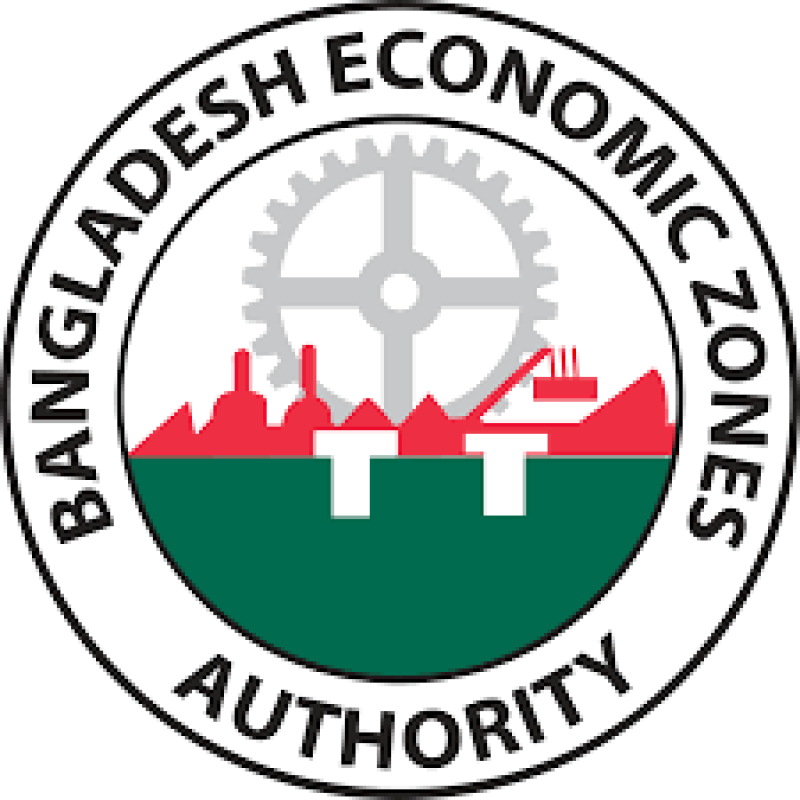- BSEC Chairman’s resignation urged to stabilise stock market |
- Rain, thundershowers likely over 8 divisions: BMD |
- First freight train leaves Mongla carrying molasses |
- 2 dead, six hurt in Sherpur micro-autorickshaw-motorbike crash |
- One killed over loud music row at wedding party in Natore |
BEZA plans to implement 20 SEZs in 20 years

Bangladesh Economic Zones Authority (BEZA) is planning to implement 20 Special Economic Zones (SEZs) within 20 years under three phases.
The information was revealed today at a national workshop on "Economic Zone Prioritization and Phasing Offsite Infrastructure Planning and Development Mechanism" at Bangladesh Investment Development Authority (BIDA) conference room in the city.
Executive Chairman of BIDA and BEZA Chowdhury Ashik Mahmud Bin Harun chaired the workshop while World Bank Country Director for Bangladesh and Bhutan Gayle Martin attended the event as special guest.
BEZA organised the event with the participation of stakeholders to prepare a National Master Plan for the planned economic zones of the country.
In his speech, Chowdhury Ashik Mahmud Bin Harun said BEZA has been committed to crafting strategies, developing infrastructure, and devising incentive schemes, all of which aim to ensure the alignment of investor interests with BEZA activities.
"There is no alternative to collaborating with foreign investors to advance a mutual economic agenda. Our industrial development going forward must focus on a few key aspects, such as reducing import dependency for backward linkage, utilizing our trade route access, diversifying the trade basket and expanding production and export of higher value and higher margin products," he added.
He said BEZA remains committed to ensuring that the economic zones promote industrialization and sustainable and inclusive development. Environmental considerations, employment generation, skills development, and regional balance are key pillars in the master plan, he added.
"Additionally, we are fostering partnerships with the private sector through Public-Private Partnership (PPP) models and Government-to-Government (G2G) collaborations to ensure effective implementation," he said.
On behalf of the World Bank, Gayle Martin reaffirmed their commitment to supporting Bangladesh in achieving its ambitious economic and industrialization goals.
"We look forward to working with BEZA, the government, private investors, and all stakeholders to create a sustainable, inclusive, and globally competitive economic zone ecosystem," she added.
Project Director of the National Special Economic Zone Development Project Abdullah Al Mahmud Faruk delivered the welcome speech while Senior Advisor to 'Trade, Technology and Skills' team at National Council of Applied Economic Research, India and international consultant on SEZs at Asian Development Bank Aradhna Aggarwal made a presentation on 'Study of National Master Plan for Bangladesh Economic Zones Authority'.
Since its inception, Abdullah Al Mahmud Faruk said, BEZA has been dedicated to transforming Bangladesh into a global investment hub, ensuring sustainable and inclusive industrialization.
"As we approach a developed country, it is essential to accelerate industrial development and align our strategies with the Fourth Industrial Revolution. Developing well-planned, high-potential economic zones will play a pivotal role in diversifying exports, attracting foreign investments, creating jobs, and ensuring environmental sustainability," he added.
Aradhna Aggarwal said BEZA intends the implementation of EZ development in three phases such as short (0-5 years), medium (5-10 years) and long term (10-20 years).
She said development phases segregated into Phase 1 (FY24-25 to FY 29-30), Phase 2 (FY30-31 to FY 34-35), and Phase 3 (FY35-36 to FY45-46). "66 proposed government economic zones were considered for the phasing exercise. Based on land and legal status, 46 proposed zones excluded from any phase and 20 proposed zones were segregated into 3 phases," she added.

